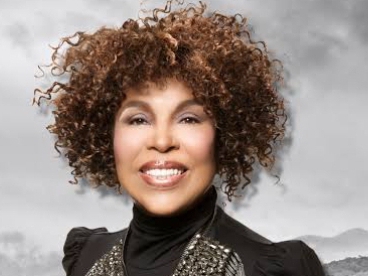Who is Roberta Flack, ‘Killing Me Softly’ singer that died at 88? 7 things to know

Roberta Flack: SV Museum
Roberta Flack, a music icon celebrated for her soulful classics like “Killing Me Softly” and “The First Time Ever I Saw Your Face,” captivated audiences with a voice that beautifully conveyed love and passion. Sadly, she passed away on February 24, 2025, at the age of 88. Flack’s powerful influence on soul, jazz, and R&B goes beyond her chart-topping hits, earning her a place among the most influential voices in music history.
She won a Grammy Award for the Song of the Year in 1974 with her iconic “Killing Me Softly with His Song.”
According to Reuters, In 2022, Flack was diagnosed with amyotrophic lateral sclerosis (ALS), a progressive neurodegenerative disease that affected her ability to sing and speak. Although her life was marked by great challenges, her legacy is a testament to her impact on music and culture. Here are seven significant aspects of her life to celebrate her extraordinary journey.
READ MORE: Is Mukaila Sewele really dead? Here are 7 things to know
Celebrity socialite, Cash Madam is dead…here’s what to know
7 Things to Know About Roberta Flack
Early Life
Born on February 10, 1937, in Black Mountain, North Carolina, during a time of racial segregation, Roberta Flack’s early experiences shaped her music. Raised in Arlington, Virginia, she grew up surrounded by church music, influenced by her mother, who was a church organist. At nine, she began playing the piano, practicing on her father’s old instrument, which helped her develop her musical talent. Her exceptional skills earned her a full music scholarship to Howard University at just 15, where she initially pursued classical piano, inspired by composers like Chopin and Schumann. However, she later combined her classical background with the soulful sounds she grew up with, setting the foundation for her unique style.
From Teacher to Performer
After losing her father, Flack supported her family by teaching music and English in North Carolina and Washington, D.C. She spent her days as an educator and her nights performing at local clubs. Her unique blend of musical genres caught the attention of jazz musician Les McCann, who helped her secure a recording contract with Atlantic Records in 1968. This turning point marked her transition from teaching to becoming a celebrated musical artist.
Breakthrough in Music
Flack’s first album, First Take, released in 1969, featured her version of “The First Time Ever I Saw Your Face.” The song gained massive popularity after Clint Eastwood used it in his 1971 movie Play Misty for Me, propelling it to the top of the Billboard charts. It also earned her a Grammy Award for Record of the Year in 1973, solidifying her status as a music icon.
Legendary Collaborations
Flack’s partnership with fellow Howard University alumnus Donny Hathaway produced memorable duets like “Where Is the Love” and “The Closer I Get to You.” Their musical chemistry combined soulful harmonies with emotional lyrics, achieving both critical acclaim and commercial success. Unfortunately, their collaboration ended with Hathaway’s tragic death in 1979.
Philanthropy and Education
Beyond her musical achievements, Flack was dedicated to education and giving back. In 2005, she founded the Roberta Flack School of Music at the Hyde Leadership Charter School in the Bronx, New York, offering free music education to underprivileged children. Her commitment to nurturing young talent ensured her legacy would influence future generations of musicians.
Timeless Hits and Inspiration
In 1973, Flack released “Killing Me Softly with His Song,” which became one of her signature hits. The song was inspired by Lori Lieberman’s experience at a Don McLean concert, crafted by songwriters Norman Gimbel and Charles Fox. Flack discovered the song during a flight and made it her own with an emotional, soulful rendition. It topped the Billboard Hot 100 and earned her a second consecutive Grammy Award for Record of the Year in 1974, making her the first artist to win this award two years in a row.
Health Challenges and Legacy
According to AP News, in 2018, Flack was hospitalized after falling ill at a benefit concert, revealing that she had previously suffered a stroke. In 2022, she was diagnosed with ALS, which affected her ability to sing and speak. Despite her health challenges, Roberta Flack’s influence on music remains profound. Her timeless songs continue to inspire artists across generations, ensuring that her legacy endures.
Roberta Flack’s life was rich with musical brilliance, resilience, and a commitment to education and philanthropy. Her voice, once a symbol of love and passion, will continue to echo through her timeless music and the lives she touched.

